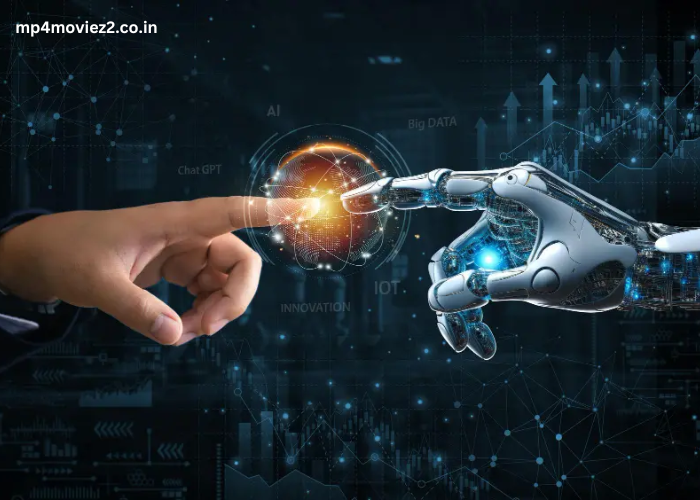Technology continues to drive change at an unprecedented pace, reshaping industries and setting new standards for efficiency, sustainability, and innovation. In 2025, cutting-edge advancements are helping businesses rethink traditional processes, improve productivity, and meet the demands of a rapidly evolving global market.
This guide explores the top tech innovations redefining industry standards and how businesses can leverage them for success.
1. Artificial Intelligence: The Cornerstone of Modern Business
Artificial Intelligence (AI) has become a critical tool in reshaping industries. Its ability to analyze data, automate processes, and improve decision-making has revolutionized everything from healthcare to retail.
Key Applications of AI:
- Predictive Maintenance: Manufacturing industries use AI to predict equipment failures, reducing downtime.
- Customer Insights: AI-powered analytics tools help businesses understand consumer behavior and preferences.
- Automation: Repetitive tasks, such as data entry and inventory management, are automated using AI.
Example: AI chatbots in the customer service industry can handle up to 70% of customer queries, improving response times and reducing costs.
Reminder: Businesses adopting AI must address ethical considerations like bias in algorithms and data privacy.
2. The Internet of Things (IoT): Connecting the World
IoT technology has expanded far beyond smart homes, becoming a key driver in industrial transformation. Connected devices enable real-time monitoring, improved communication, and optimized operations across various sectors.
Industries Leveraging IoT:
- Agriculture: Smart sensors monitor soil health and weather conditions to boost productivity.
- Logistics: IoT enables real-time tracking of shipments, improving delivery accuracy.
- Healthcare: Wearable devices monitor patient health, providing data for better diagnosis and treatment.
| Industry | IoT Application | Benefits |
|---|---|---|
| Agriculture | Smart farming solutions | Higher crop yields |
| Logistics | Fleet tracking systems | Reduced operational costs |
| Healthcare | Wearable health trackers | Improved patient care |
Pro Tip: Investing in robust IoT security protocols is essential to prevent data breaches.
3. Blockchain: Revolutionizing Security and Transparency
Blockchain technology continues to redefine how industries handle data. With its decentralized and tamper-proof nature, blockchain ensures transparency and security across various applications.
Blockchain in Action:
- Supply Chain: It tracks goods throughout the supply chain, ensuring authenticity and quality.
- Finance: Blockchain facilitates secure and instant transactions without intermediaries.
- Healthcare: It protects patient data and prevents fraudulent claims.
Example: Walmart uses blockchain to trace food products back to their source, enhancing food safety standards.
Reminder: Blockchain adoption can be challenging, but the benefits of enhanced security and transparency outweigh the complexities.
4. 5G Technology: Redefining Connectivity
The global rollout of 5G networks is a game-changer for industries that rely on fast and reliable internet connectivity.
Key Impacts of 5G:
- Enhanced IoT Functionality: 5G supports a larger number of devices with low latency.
- Autonomous Vehicles: Faster connectivity enables safer and more efficient self-driving systems.
- Immersive Experiences: Industries like entertainment and education leverage VR/AR technologies powered by 5G.
Example: Smart cities equipped with 5G-enabled sensors can optimize traffic management, reducing congestion and emissions.
5. Sustainable Technology: A Greener Future
Sustainability is no longer just an option but a necessity. Innovations in green technology are helping businesses reduce their environmental footprint while maintaining profitability.
Examples of Sustainable Tech:
- Renewable Energy: Solar and wind energy are increasingly used to power industrial processes.
- Energy-Efficient Solutions: Smart grids and energy-saving devices are helping industries cut costs.
- Recycling Innovations: Advanced recycling systems promote waste management and a circular economy.
| Technology | Environmental Impact |
|---|---|
| Solar and Wind Power | Reduced reliance on fossil fuels |
| Smart Grids | Efficient energy distribution |
| Advanced Recycling Tech | Reduced waste in landfills |
Pro Tip: Adopting sustainable technology not only benefits the environment but also enhances brand reputation.
6. Robotics and Automation: Redefining Workflows
Robots and automation are transforming traditional workflows across various industries, driving efficiency and cost savings.
Use Cases of Robotics:
- Manufacturing: Automated assembly lines reduce production time and errors.
- Logistics: Robots in warehouses improve order fulfillment accuracy.
- Healthcare: Robotic surgical systems enhance precision and patient outcomes.
Example: Amazon warehouses use robotic systems to streamline inventory management, allowing faster delivery times.
Conclusion
The tech innovations of 2025 are shaping a future where industries are smarter, faster, and more sustainable. From AI and IoT to 5G and blockchain, these technologies are not only transforming businesses but also setting the stage for a more connected and efficient world.
By embracing these advancements, companies can position themselves as leaders in their respective industries while meeting the challenges of the future. The key to success lies in staying adaptable, investing in innovation, and prioritizing sustainability.
FAQs
- What are the key tech trends for industries in 2025?
AI, IoT, blockchain, 5G, and sustainable technology are the leading trends. - How does 5G impact industrial operations?
5G improves connectivity, enabling faster communication and supporting technologies like IoT and autonomous systems. - Why is blockchain important for industries?
Blockchain enhances data security, ensures transparency, and streamlines processes like supply chain management. - What role does AI play in business transformation?
AI automates processes, improves decision-making, and delivers personalized customer experiences. - How can businesses adopt sustainable technology?
By investing in renewable energy, energy-efficient devices, and recycling innovations to reduce environmental impact.




